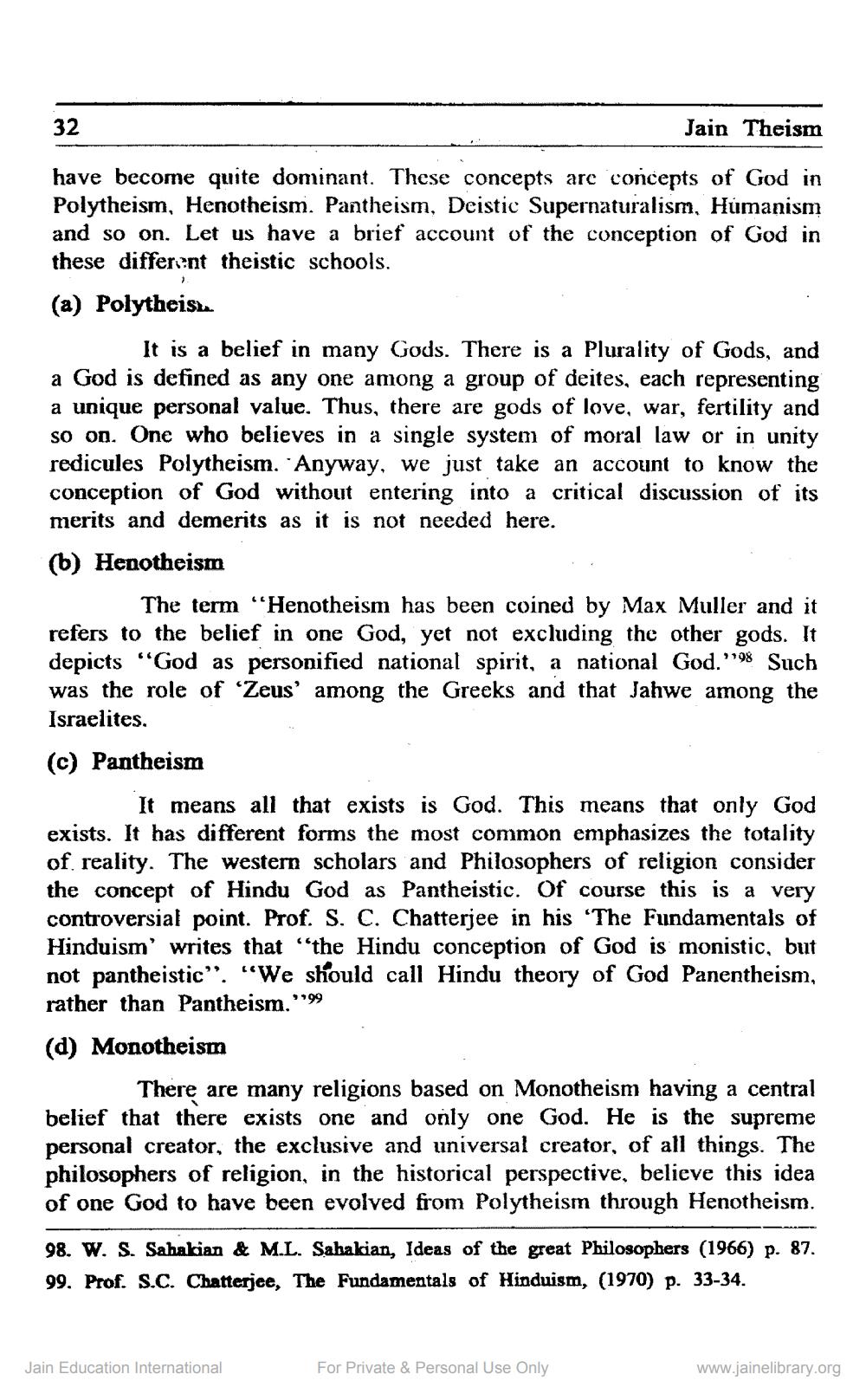________________
32
Jain Theism
have become quite dominant. These concepts are concepts of God in Polytheism, Henotheism. Pantheism, Deistic Supernaturalism, Humanism and so on. Let us have a brief account of the conception of God in these different theistic schools.
(a) Polytheisus
It is a belief in many Gods. There is a Plurality of Gods, and a God is defined as any one among a group of deites, each representing a unique personal value. Thus, there are gods of love, war, fertility and so on. One who believes in a single system of moral law or in unity redicules Polytheism. Anyway, we just take an account to know the conception of God without entering into a critical discussion of its merits and demerits as it is not needed here. (1) Henotheism
The term “Henotheism has been coined by Max Muller and it refers to the belief in one God, yet not excluding the other gods. It depicts "God as personified national spirit, a national God."98 Such was the role of ‘Zeus' among the Greeks and that Jahwe among the Israelites. (c) Pantheism
It means all that exists is God. This means that only God exists. It has different forms the most common emphasizes the totality of reality. The western scholars and Philosophers of religion consider the concept of Hindu God as Pantheistic. Of course this is a very controversial point. Prof. S. C. Chatterjee in his 'The Fundamentals of Hinduism' writes that "the Hindu conception of God is monistic, but not pantheistic". "We should call Hindu theory of God Panentheism, rather than Pantheism."*99 (d) Monotheism
There are many religions based on Monotheism having a central belief that there exists one and only one God. He is the supreme personal creator, the exclusive and universal creator, of all things. The philosophers of religion, in the historical perspective, believe this idea of one God to have been evolved from Polytheism through Henotheism.
98. W. S. Sahakian & M.L. Sahakian, Ideas of the great Philosophers (1966) p. 87. 99. Prof. S.C. Chatterjee, The Fundamentals of Hinduism, (1970) p. 33-34.
Jain Education International
For Private & Personal Use Only
www.jainelibrary.org




